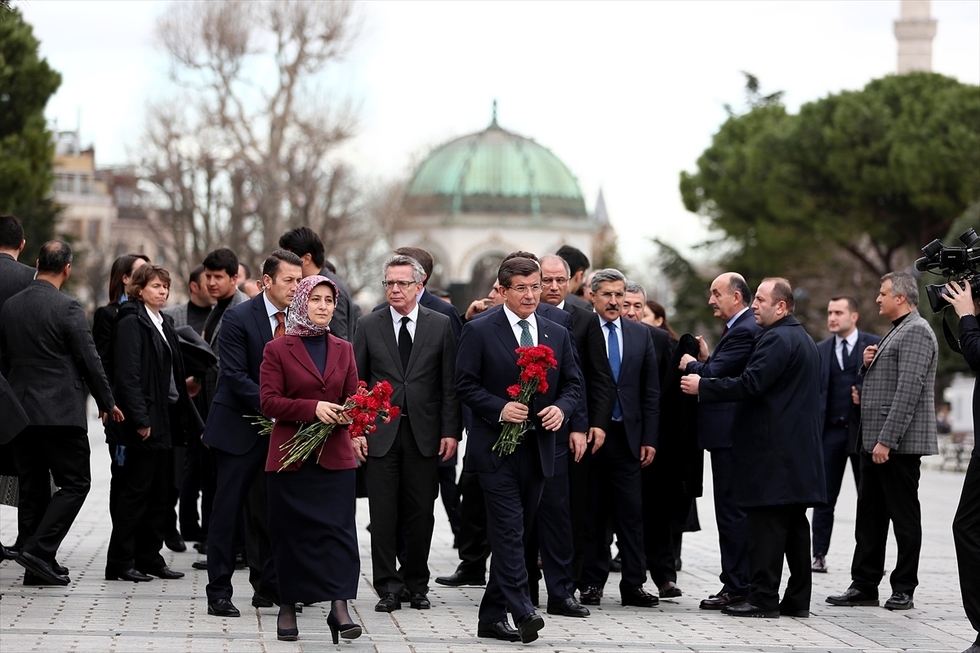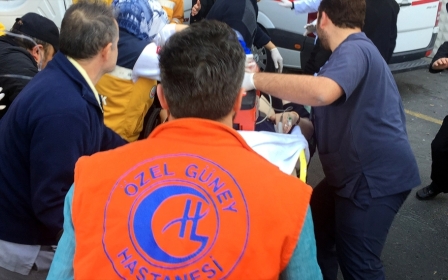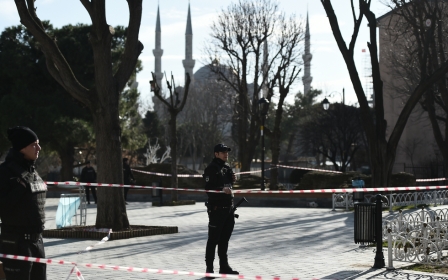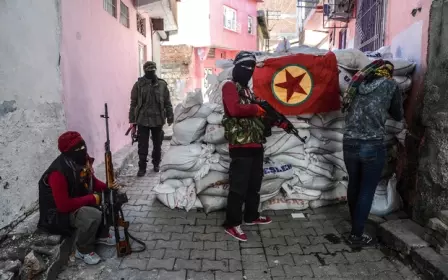Turkey is struggling in its multi-front fight against terror

It is a sign of the tensions currently racking Turkey’s national life that when a suicide bombing which killed 10 foreign tourists in an explosion Istanbul’s historic Sultanahmet area on Tuesday morning, three completely different terrorist organisations were initially suspected of being behind it. Suspects just after the explosion included an ultra-violent Marxist group, the DHKP/C, an offshoot of the Kurdish PKK (Kurdistan Workers’ Party), and ISIS.
Though a Kurdish connection was widely predicted because of current fighting in southeast Anatolia it rapidly turned out that ISIS was responsible. By Tuesday afternoon, the Turkish government announced that it had identified the suicide bomber as a Saudi-born Syrian Nabil Fadli, born in 1988, who is believed to have crossed into Turkey from Syria a few days ago. He was apparently identified from finger prints on a data base. How far he was under police surveillance is unclear.
There may be a longish wait for a full explanation as a news blackout was immediately imposed, first in an order to the media by the Deputy Prime Minister Numan Kurtulmus, and then by a court, which also specifically bans discussion on social media. Though the reporting restrictions have followed earlier bombings by ISIS in Turkey, hence leaving a murky cloud of lingering uncertainty in each case about exactly what happened, this is the first time that social media has also been included in such a restriction.
Nine of the 10 victims were Germans and the fact that foreigners and tourists were targeted triggered a surge of international interest greater than that in earlier bombings. (The worst blast last year saw 102 people died at an explosion in Ankara on 16 October and 32 at Suruc on 20 July.)
The attack was clearly intended to be a body blow to Turkey’s tourism industry, one of the main props of the country. In 2014, 42 million tourists visited Turkey, making it one of the world’s major destination and they spent $36 billion – slightly more than the country’s estimated current account deficit in 2015.
Istanbul and many other cities across Turkey depend on tourism, but during 2015 numbers fell and many hotels currently complain of depressingly low occupancy rates. This is worrying news for the Turkish economy, particularly after Turkey’s rift with Russia over the downing of a Russia plane on the Syrian-Turkish border on 24 November has been followed by Russian sanctions against Turkish companies, including tourism firms.
The bombing incident also suggests serious gaps in security - something which has also been apparent in the three previous ISIS-related attacks during 2015. If tourists in Sultanahmet district, in the shadow of Ayasofya and the Blue Mosque are not safe, then the whole industry could be in trouble. The attack is actually not the first in the area. On 6 January last year, a woman from the Caucasus blew herself up outside a police station a few hundred metres away.
Since the explosion it has been revealed that Turkey’s intelligence agency, MIT, actually warned its own units twice, on 17 December and 4 January, that ISIS was poised to attack targets including embassies and tourists.
Somehow the bomber still slipped through the net. This may not be altogether surprising. Turkey currently has a population of 2.5 million refugees from other Muslim countries, most though far from all are from Syria. Heavy-handed security measures might be effective, though they would be likely to deter tourists and also extremely difficult to operate in an 18 million people megalopolis like Istanbul. Surveillance in holiday resorts is distinctly easier.
The main lesson however is that ISIS, after a long phase in which it only attacked pro-Kurdish and socialist groups in Turkey, as well as exiles from the Arab world, rather than the ruling AKP and the country’s mainstream, has now set its sights on Turkey as a whole.
The breach reflects growing condemnation of ISIS by Turkey over the last year especially by President Erdogan, who has denounced it many times (though sometimes seemingly conflating it with other movements he regards as deadly opponents) and the decision to join the US-led international coalition against ISIS in July last year and to open up Turkish airports at Adana and Diyarbakir to planes from other countries.
This contrasts with much less critical official attitudes in previous years, even taking the line that ISIS was simply driven by anger at harsh and unjust historical experiences. ISIS seems to have responded by changing tactics.
The delay in focusing on the threat from ISIS allowed the movement to gain a foothold in Turkey, winning Turkish recruits and converts, such as the "Dokumaci" group of brothers and friends in the eastern town of Adiyaman. They formed an ISIS cell and carried out the bombings last summer at Diyarbakir, Suruc and Ankara, all while under police surveillance without being detained.
Turkish religious scholars too speak privately of growing pressure from pro-ISIS Salafi groups challenging local Sunni communities in Istanbul and other cities traditionally oriented towards Naqshbandi Sufism.
The risk of a direct confrontation with ISIS has been there since Turkey threw in its lot with the anti-ISIS coalition. For some months there have been regular attacks on President Erdogan in Dabiq, ISIS’s English-language magazine.
Faced by a visibly rising threat, Turkey stepped up police surveillance and raids upon ISIS supporters, arresting 12 of them on 5 January in Istanbul, and similar raids in earlier months. But the major problem it faces is that it is also cracking down on other enemies: PKK-supporting Kurds, the ultra-left, and the Gulen movement. A few hours after Tuesday’s attack President Erdogan reminded Turkey’s diplomats that combating the Gulen movement across the world is one of their priorities.
Turkey is planning tough moves, announced in recent weeks, to beef up its security and anti-terrorist operations, mobilising the administration against terror, building around 30 new "fortified police stations", and cutting down on possible local authority abuses. These suggest however that the primary focus is on the PKK rather than ISIS.
The climate of secrecy - which means the public cannot see where existing arrangements may be defective and so press for change - means, as many Turks realise, that the country is very vulnerable to further unexpected shocks and needs to improve its defences, not least if it is to survive as a major tourism destination.
- David Barchard has worked in Turkey as a journalist, consultant, and university teacher. He writes regularly on Turkish society, politics, and history, and is currently finishing a book on the Ottoman Empire in the 19th century.
The views expressed in this article belong to the author and do not necessarily reflect the editorial policy of Middle East Eye.
Photo: Turkish Prime Minister Ahmet Davutoglu (R) and his wife Sare Davutoglu (L) leave roses for the ones who lost their lives in an attack at Sultanahmet square after it has been reopened to media and public in Istanbul, Turkey on 13 January, 2016 (AFP).
New MEE newsletter: Jerusalem Dispatch
Sign up to get the latest insights and analysis on Israel-Palestine, alongside Turkey Unpacked and other MEE newsletters
Middle East Eye delivers independent and unrivalled coverage and analysis of the Middle East, North Africa and beyond. To learn more about republishing this content and the associated fees, please fill out this form. More about MEE can be found here.





